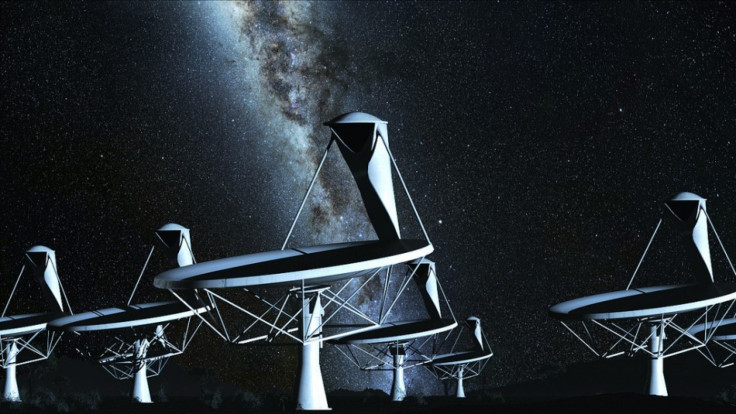IBM’s ‘Cosmic Contract’ To Yield Dividends In ‘Big Data’ Computer Design

IBM (NYSE: IBM) and the Netherlands Institute for Radio Astronomy announced a five-year deal for computer support for the world's most sensitive telescope.
The deal, partly sponsored by a 32.9-million Euro ($42.5 million) grant from various Dutch agencies, will spur IBM to devise new methods of collecting, analyzing and storing data for Astron, the Dutch agency developing the giant Square Kilometer Array (SKA) telescope.
Starting in 2024, the SKA is scheduled to begin scanning the universe for new galaxies, so-called dark matter or weak-interacting particles that make up part of the universe and other astrophysical clues to the origins of the cosmos.
But the new methods of stacking memory chips, transmitting data by optical computing and determining how best to store petabytes (or 1,000 terabytes equivalent to 1,000 trillion bytes) will also benefit IBM, the world's No. 2 computer company, said Tom Engbersen, a senior researcher in the company's Zurich Research Center.
Bigger Than Watson
We'll be getting a very important stream of research over the next five years, he said, which should likely enable IBM to develop next-generation machines.
IBM's current processing leader, the Watson supercomputer scheduled this year to work for WellPoint (NYSE: WLP) and Memorial-Sloan Kettering Cancer Research Center in health as well as for Citigroup (NYSE: C) in financial services, by contrast, can handle only terabytes of data.
Broken down, Watson is 90 IBM Power 750 servers that handle 16 terabytes of memory and 4 terabytes of clustered storage.
The SKA telescope, though, will require vastly more than that, Engbersen explained, because the radio arrays will constantly be scanning the universe for data.
The data requirement is double the traffic of today's Internet, the IBM scientist explained. The SKA is so big that its scanning area will be about as big as the continental U.S. It seems likely to be housed in South Africa or Australia because of apparent lack of interference from mobile phone traffic.
Army Of Researchers
Once the data are in, the computer will need to analyze it, determine what can be stored long-term and for the near-term, setting up competition between cheap, traditional tape storage and more expensive online storage. The system may have to be taught how to differentiate, he said.
About 70 IBM researchers will work with the astronomers developing the telescope, many of whom now are in Drenthe, the Netherlands.
To deal with heat generated from enormous computation power, IBM engineers will experiment with stacking chips on top of each other in parallel blocks resembling skyscrapers.
Putting more servers in parallel use ought to lower power consumption, the IBM researcher said, changing the traditional methods of mainframe computing used for the past 60 years.
Quantum, Optical Breakthroughs
Earlier this year, IBM Research announced separate breakthroughs in both quantum computing, which permits computing at superfast speeds but only at supercold temperatures, as well as transmission of a terabyte of data using off-the-shelf chips and technology.
The company plans to tap those advances as well as further ones as it develops the SKA telescope, he said.
IBM declined to say how much it plans to invest in this venture. The company spent $1.56 billion on research last quarter and nearly $6.1 billion last year, up 3.8 percent from 2010.
IBM shares set a new record high of $209.69 before closing at $209.47, up 82 cents, in Monday trading.
© Copyright IBTimes 2024. All rights reserved.





















